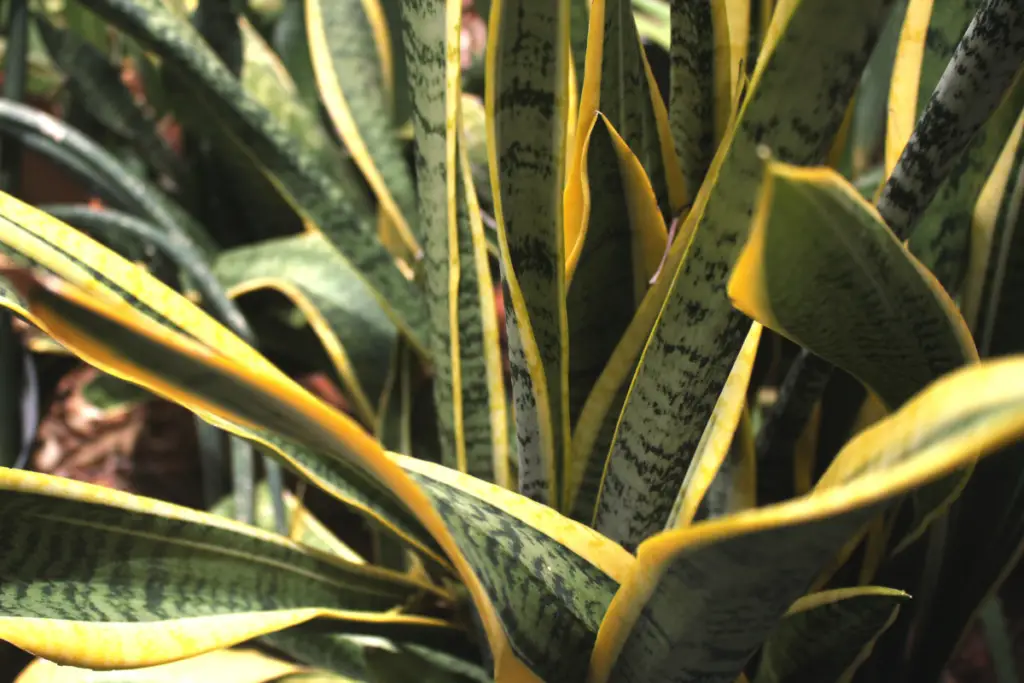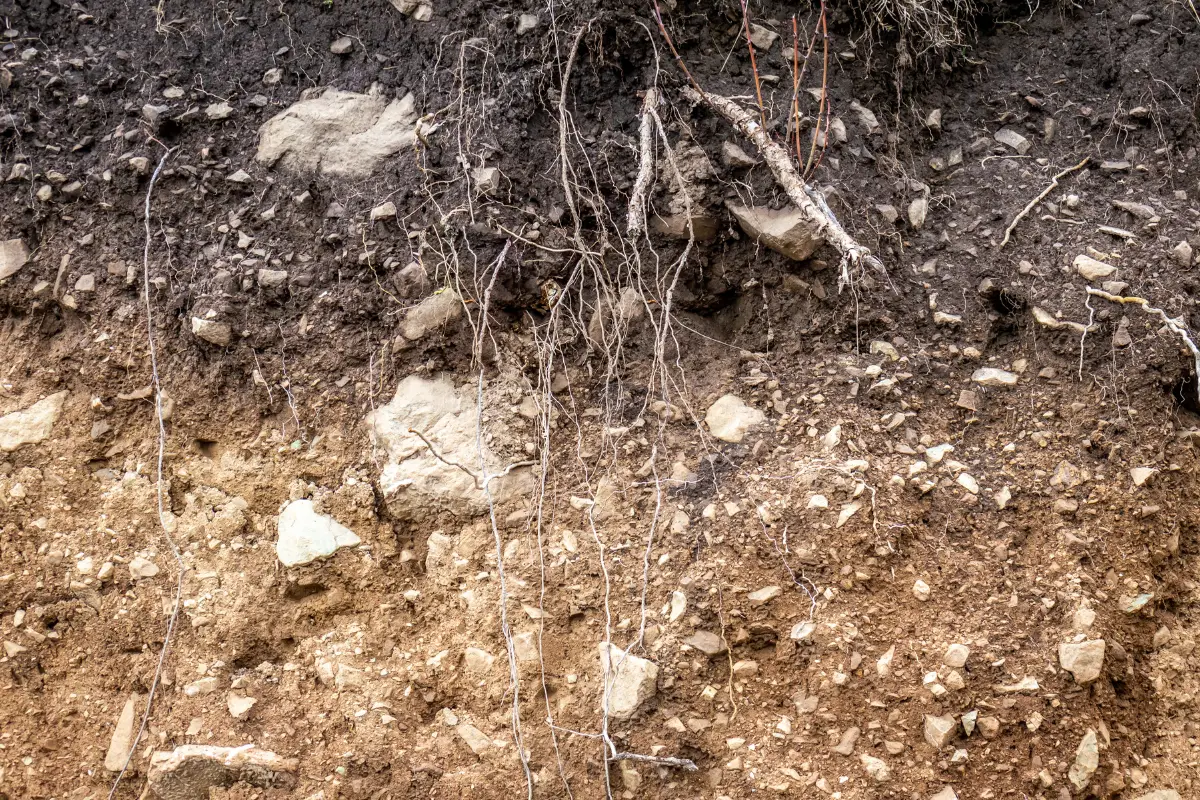Snake plants are popular houseplants that are known for their air-purifying properties and easy maintenance.
However, some pet owners are concerned about the toxicity of these plants to their furry friends.
The question of whether snake plants are really poisonous to dogs is a valid one, and it is important for pet owners to be aware of the potential risks.
According to the American Society for the Prevention of Cruelty to Animals (ASPCA), snake plants are toxic to dogs and cats.
The plant contains a toxic chemical called saponin, which can cause distressing reactions when ingested by pets.
Symptoms of snake plant toxicity in dogs include hypersalivation, dilated pupils, nausea, vomiting, and diarrhea. While the toxicity is considered mild to moderate, it is still a cause for concern for pet owners.
Despite the potential risks, snake plants can still be enjoyed by pet owners as long as precautions are taken.
Pet owners should keep snake plants out of reach of their furry friends, and monitor them for any signs of toxicity if they suspect their pet has ingested the plant.
By being aware of the potential risks and taking necessary precautions, pet owners can enjoy the benefits of snake plants without putting their furry friends in harm’s way.

Table of Contents
Understanding Snake Plants
Snake plants, also known as Sansevieria, are a popular houseplant due to their low maintenance and air-purifying qualities. However, pet owners may wonder whether these plants are safe for their furry friends.
According to the American Society for the Prevention of Cruelty to Animals (ASPCA), snake plants are toxic to dogs and cats.
They contain a toxic chemical called saponin, which can cause gastrointestinal distress, hypersalivation, and dilated pupils when ingested in large quantities.
While snake plant poisoning is not usually fatal, it can cause discomfort and irritation for pets. Therefore, it is important to keep these plants out of reach of curious dogs and cats.
It is also worth noting that snake plants can cause skin irritation in humans, so it is recommended to wear gloves when handling them.
In terms of care, snake plants are relatively easy to maintain. They prefer bright, indirect light and well-draining soil. Overwatering can lead to root rot, so it is important to let the soil dry out between waterings.
Overall, while snake plants may not be the best choice for pet owners, they can make a great addition to any pet-free household.
Snake Plants and Their Toxicity
Snake plants, also known as Sansevieria, are a popular houseplant that is known for its air-purifying abilities.
However, pet owners may wonder if these plants are safe to have around their furry friends.
According to the American Society for the Prevention of Cruelty to Animals (ASPCA), snake plants are considered toxic to both dogs and cats.
The toxicity of snake plants is due to the presence of saponins, a naturally occurring substance that can cause gastrointestinal distress in pets.
The severity of the symptoms can vary depending on the amount of plant material ingested and the size of the animal.
Symptoms of snake plant toxicity in dogs may include hypersalivation, vomiting, diarrhea, and dilated pupils.
In severe cases, it can also cause numbness in the tongue and throat, leading to difficulty breathing. If you suspect that your dog has ingested a snake plant, it’s important to seek veterinary care immediately.
Although snake plants are considered toxic, deaths from snake plant poisoning are uncommon. Most dogs will experience discomfort and gastrointestinal irritation, but they will recover with proper care.
It’s important to keep snake plants out of reach of pets and to monitor them closely when they are around these plants.
In summary, snake plants are toxic to dogs and cats due to the presence of saponins. Pet owners should take precautions to keep their furry friends safe from ingesting these plants and seek veterinary care immediately if they suspect their pet has ingested any part of the plant.
Effects of Snake Plant Poisoning in Dogs
Snake plants are considered mildly to moderately toxic to dogs. They contain saponins, which cause hypersalivation, dilated pupils, and gastrointestinal distress.
If a dog ingests a large amount of snake plant, it can result in serious health problems. Here are some of the physical and behavioral symptoms of snake plant poisoning in dogs.
Physical Symptoms
- Nausea and Vomiting: Dogs may vomit after ingesting snake plant. Vomiting can lead to dehydration and electrolyte imbalances, which can be life-threatening if left untreated.
- Diarrhea: Dogs may experience diarrhea after ingesting snake plant. Diarrhea can lead to dehydration and electrolyte imbalances, which can be life-threatening if left untreated.
- Ruptured Red Blood Cells: Snake plant poisoning can cause the rupture of red blood cells in dogs. This can lead to anemia, which can cause weakness, fatigue, and other health problems.
- Hypersalivation: Dogs may experience excessive drooling after ingesting snake plant. This is due to the saponins in the plant, which can irritate the mucous membranes in the mouth and throat.
Behavioral Symptoms
- Lethargy: Dogs may become lethargic and tired after ingesting snake plant. This is due to the effects of the saponins on the dog’s body.
- Loss of Appetite: Dogs may lose their appetite after ingesting snake plant. This is due to the nausea and gastrointestinal distress caused by the saponins in the plant.
- Agitation: Dogs may become agitated and restless after ingesting snake plant. This is due to the effects of the saponins on the dog’s nervous system.
- Depression: Dogs may become depressed and withdrawn after ingesting snake plant. This is due to the effects of the saponins on the dog’s body.
In conclusion, snake plants can cause serious health problems in dogs if ingested in large quantities.
It is important to keep snake plants out of reach of dogs to prevent accidental ingestion. If a dog ingests snake plant, it is important to seek veterinary care immediately to prevent serious health problems.
Treatment Options for Snake Plant Poisoning in Dogs
If a dog has ingested snake plant or is showing any symptoms of snake plant poisoning, it is important to seek veterinary care immediately.
The severity of the symptoms will determine the course of treatment.
Veterinary Intervention
Veterinary intervention is necessary in cases where the dog is showing severe symptoms of snake plant poisoning. The veterinarian may perform the following treatments:
- Inducing vomiting: The veterinarian may induce vomiting to remove the plant material from the dog’s stomach.
- Stomach pumping: In severe cases, the veterinarian may pump the dog’s stomach to remove any remaining plant material.
- Intravenous fluids: The veterinarian may administer intravenous fluids to help flush the toxins out of the dog’s system.
- Medication: The veterinarian may prescribe medication to help control the dog’s symptoms.
Home Care
If the dog is showing mild symptoms of snake plant poisoning, home care may be an option. The following steps can be taken to help the dog recover:
- Remove the plant: Remove the snake plant from the dog’s environment to prevent further ingestion.
- Offer water: Offer the dog plenty of water to help flush the toxins out of their system.
- Monitor symptoms: Keep a close eye on the dog’s symptoms and contact a veterinarian if they worsen or do not improve within a few hours.
- Offer bland food: Once the dog’s symptoms have improved, offer them bland food such as boiled chicken and rice to help settle their stomach.
It is important to note that while home care may be an option for mild cases of snake plant poisoning, it is always best to seek veterinary care to ensure the dog receives proper treatment.
Preventing Snake Plant Poisoning in Dogs
Snake plants are popular houseplants known for their air-purifying qualities and low maintenance.
However, they contain saponins, which can cause gastrointestinal distress, hypersalivation, and dilated pupils in dogs when ingested in large quantities.
While the toxicity is mild to moderate, it is still essential to take precautions to prevent your dog from getting poisoned.
Plant Placement
The first step to prevent snake plant poisoning is to place the plant in a location that is inaccessible to your dog.
Consider placing it on a high shelf or using a hanging planter. If your dog is a climber, you may need to place the plant in a separate room or behind a barrier.
Training Your Dog
Training your dog is the second step to prevent snake plant poisoning. Teach your dog the “leave it” command and use it consistently when he shows interest in the plant.
Reward him with treats and praise when he obeys the command. Consistency is key to ensure your dog understands the command.
Another way to train your dog is to provide him with alternative toys or chew treats. This will keep him occupied and less likely to chew on the plant.
You can also use a bitter-tasting spray on the plant to discourage your dog from chewing on it.
By taking these precautions, you can prevent snake plant poisoning in your dog. However, if you suspect that your dog has ingested a toxic substance, call your veterinarian or the ASPCA Animal Poison Control Center at (888) 426-4435 immediately.
Alternative Plants Safe for Dogs
While snake plants may be a popular choice for indoor plants, their potential toxicity to dogs can be a concern for pet owners. However, there are several alternative plants that are safe for dogs to be around.
Spider Plant
Spider plants are a popular choice for indoor plants and are safe for dogs. They are easy to care for and can help purify the air in your home.
Spider plants are non-toxic to dogs and can even provide some nutritional benefits if your dog decides to nibble on them.
Boston Fern
Boston ferns are another popular choice for indoor plants that are safe for dogs. They are known for their air-purifying properties and can help to remove toxins from the air.
Boston ferns are non-toxic to dogs and can be a great addition to your home.
Areca Palm
Areca palms are a tropical plant that can add a touch of the exotic to your home. They are also safe for dogs and can help to purify the air.
Areca palms are non-toxic to dogs and can be a great option if you are looking for a plant that is safe for your furry friend.
Bamboo Palm
Bamboo palms are another tropical plant that is safe for dogs. They are easy to care for and can help to purify the air in your home.
Bamboo palms are non-toxic to dogs and can be a great option if you are looking for a safe and stylish plant for your home.
Overall, there are many alternative plants that are safe for dogs and can provide the same benefits as snake plants.
Pet owners should always research the toxicity of plants before bringing them into their home and should monitor their pets around indoor plants.
Conclusion
In conclusion, snake plants are generally safe for dogs as they are not toxic to them.
However, pet owners should still be cautious and keep their pets from ingesting large quantities of the plant, as it may cause mild gastrointestinal upset.
It is always best to consult with a veterinarian if you suspect your dog has ingested something potentially harmful.
- How to Dry Basil Leaves: A Professional Guide
- Is an Avocado a Fruit or Vegetable? Simple Answer and Explanation
- Does Pineapple Have Seeds? Exploring the Anatomy of Pineapples
- Blooming Through Winter: Can I Grow Vegetables Indoors in the Winter?
- What Can You Grow in a Greenhouse All Year Round: A Guide to Year-Round Greenhouse Gardening
- Are Blueberries Blue? Debunking the Myth of Their Color
















